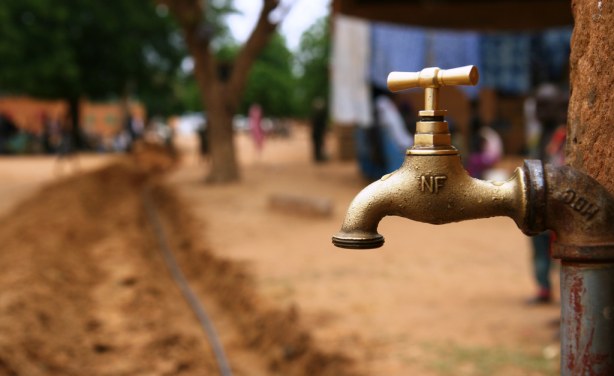The Bulawayo City Council (BCC) has with immediate effect increased the water-shedding programme from the current 48 hours to 72 hours, owing to a host of challenges affecting its capacity to provide water to the city.
Addressing stakeholders at an emergency water situation update, Wednesday, the city Mayor Councillor Solomon Mguni said the local authority was forced to introduce the 72-hour water-shedding programme due to electricity challenges and constant breakdowns at the city`s pump stations.
“The City of Bulawayo would like to advise residents, stakeholders and members of the public of the revision of the current 48-hour water-shedding programme to 72-hour water-shedding programme with immediate effect,” said the Mayor.
“Council has made the decision to introduce 72-hour water-shedding programme per week due to a number of challenges which have been experienced over the past weeks. The City’s water demand over the last three weeks has increased from an average of 135 megalitres per day to 150 megalitres per day.
“In comparison to the raw water production figures of 110 Megalitres per day, resulting in a deficit of 45 -60 megalitres per day. This deficit in the past has been largely managed through the introduction of a 48 -hour water-shedding programme.”
The mayor said they have receiving Intermittent power supply to Ncema Water Treatment plant and Fernhill pumping station, Umzingwane and Inyankuni dams due to the electricity challenges in the country.
“Ncema and Fernhill are supplied by a dedicated power supply which is ordinarily exempt from load shedding. This, however, has changed for the past one and half months with Zimbabwe Electricity Transmission and Distribution Company (ZETDC) from time to time requesting for Ncema and Fernhill to reduce the load on the national grid.
“Further to that dams with pumping boosters such as Inyankuni and Umzingwane have experienced regular power shedding. This has reduced the raw water delivery to Criterion Water Treatment Plant, negatively affecting the raw water buffer reservoir at Criterion. The raw water buffer level continues to decrease,” he said.
Cllr Mguni said they have been reduced to limited pumping of raw water due to ageing equipment.
“Limited pumping has been a result of both power supply reductions and pump breakdowns due to old age. The raw water KSB pumps are old, and only due for replacement in March 2020 under the Bulawayo Water and Sewerage Services Improvement Project (BWSSIP).
“Currently only one set is functional at both Ncema and Fernhill. The Sulzer pumps, though relatively new in comparison, remain very old pumps as well. Work is in progress to repair the electric motors. Two booster pumps at Umzingwane Dam, which have been down since Sunday, 20 October 2019 are being repaired. The two out of three operational ones are heavily leaking and currently being welded.”
Of concern to the local authority is that water demand has remained high even after the introduction of strict water conservation methods.
“Current average consumption is at 150 Megalitres per day with an all-time peak of 170 Megalitres per day being experienced on Saturday, 19th October 2019. This is against an average abstraction and supply regime currently at 90 to 110 Megalitres per day, resulting in short-fall of 45 to 60 ML/day. This has had an overall effect of depleting and almost collapsing the City’s reservoirs and hence the periodic emergency shedding that seeks to stabilize and balance these,” the Mayor said.
The city five supply dams are currently 38.16% full with a total of 158 225 187 m3. However, the City’s strategic dam of Umzingwane is currently at 6.58 % and is projected to be decommissioned in November thereby reducing the number of supply dams to four.
On the state of city boreholes, which augment water supply to residents, the Town Clerk Christopher Dube said currently 37 boreholes are not functioning and they have engaged a private company on a short contract to repair the boreholes.
Dube also appealed to residents to conserve water and use the resource sparingly

